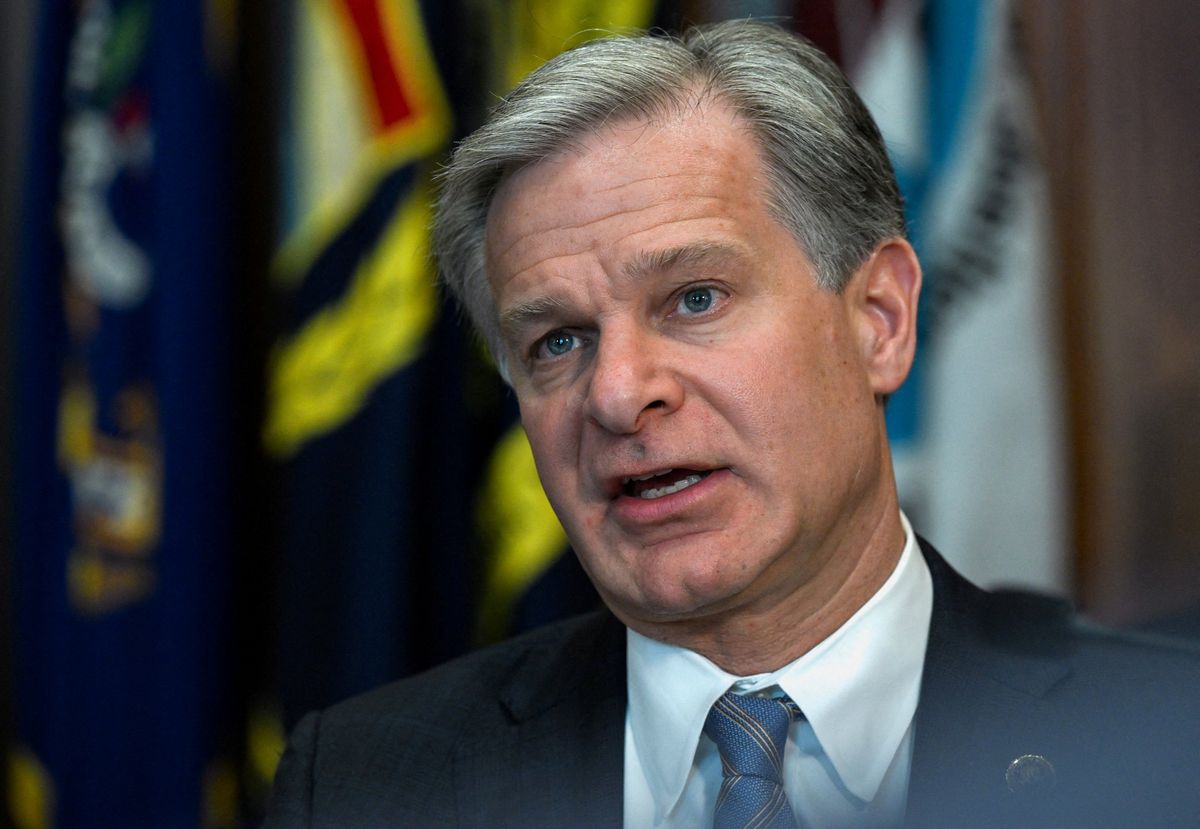
FBI Director Christopher Wray announced this week he would step down ahead of Donald Trump's swearing-in to help the FBI avoid unnecessary drama and distraction from his agents' work.
Legal analysts at Slate wrote Friday that this was a huge mistake on his part — and they're not the only ones in the legal community lambasting the law enforcement leader.
Legal affairs writer Dahlia Lithwick spoke with Slate's Supreme Court correspondent Mark Joseph Stern about the move, beginning with a quote from historian Timothy Snyder's book "On Tyranny."
Also Read: Will Trump back the FBI’s battle against domestic extremists? He won’t say.
"Do not obey in advance. Lesson 1," Snyder said..
Stern said that Wray's move "sends a terrible message, and has terrible legal consequences. By stepping down voluntarily, Wray opens up a bunch of pathways for Trump to immediately install a loyalist as acting director under the Federal Vacancies Reform Act, which governs who gets to serve as the acting head of agencies."
Trump has already announced that he intends to appoint Kash Patel to the top FBI post, despite opposition from critics like former Homeland Security adviser Olivia Troye who said he lacks experience.
If that appointment is thwarted, Trump can use the Federal Vacancies Reform Act (FVRA) to keep the FBI director he wants in the post for as long as two and a half years with a lot of "legal levers," Stern continued.
"It’s pretty clear that his team is looking for all the ways he can take advantage of these loopholes and ambiguities in the law to bypass the Senate and just build an entire government full of toadies and hacks," Stern blasted. "And Wray’s voluntary resignation from the FBI lays out that path for him."
Stern suspects that Wray quit not out of a dedication to the bureau or a sense of duty, but out of pride.
"He wanted to exit gracefully rather than face the indignity of a letter at 12:01 p.m. on Jan. 20 saying 'you’re fired,'" Stern surmised. "So he did it on his own terms. But there was so much riding, legally, on him not heading to the exit early. And by doing so, he makes it even easier for Trump to take over the FBI and use it to persecute his perceived enemies starting on Day 1."




